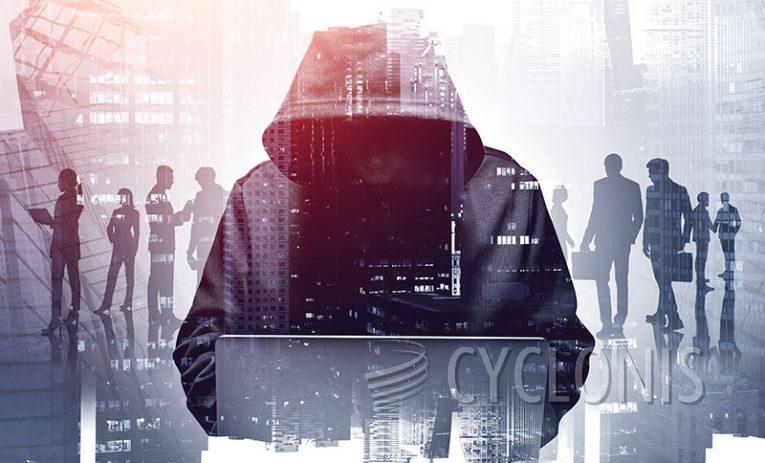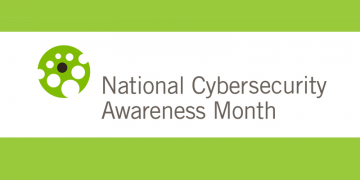What is National Cybersecurity Awareness Month?

National Cybersecurity Awareness Month (NCSAM), celebrated every October, plays a pivotal role in raising public awareness about the importance of cybersecurity in our increasingly digital world. While the initiative has evolved over the years, it owes its existence to the vision and leadership of former President George W. Bush. The history and significance of NCSAM has had a lasting impact on our nation's cybersecurity posture.
Table of Contents
The Genesis of NCSAM
In 2004, former President George W. Bush issued a proclamation that designated October as National Cybersecurity Awareness Month. The primary motivation behind this proclamation was the growing recognition of the United States' vulnerability to cyber threats. As society became more reliant on digital technologies, the need for cybersecurity education and awareness became apparent. The US Government understood that fostering a culture of cybersecurity required a concerted effort involving both government and the private sector.
The Importance of Cybersecurity Awareness
Cybersecurity is a critical aspect of modern life. It affects not only individuals but also businesses, governments, and national security. The digital landscape is rife with threats such as hackers, malware, ransomware, and data breaches. Without adequate cybersecurity measures, the consequences can be devastating, including financial loss, privacy breaches, and even threats to national security.
NCSAM serves as an annual reminder of the importance of cybersecurity awareness. It encourages individuals, organizations, and government agencies to take proactive steps to protect their digital assets and data. Through a series of educational events, campaigns, and resources, NCSAM empowers people with the knowledge and tools they need to stay safe in cyberspace.
Government and Private Sector Collaboration
One of the key strengths of NCSAM is its emphasis on collaboration between the government and the private sector. President Bush recognized that the government alone could not address the complex and evolving landscape of cybersecurity threats. Therefore, NCSAM brings together experts, industry leaders, and government officials to share insights, best practices, and resources.
The government's role in NCSAM includes providing cybersecurity guidelines, promoting research and development, and advocating for policies that enhance cybersecurity. Meanwhile, the private sector contributes by implementing cybersecurity measures, sharing threat intelligence, and educating employees and customers about online safety.
Measuring the Impact of NCSAM
Over the years, NCSAM has made significant strides in improving cybersecurity awareness and resilience. It has fostered a culture of cybersecurity that extends beyond the confines of October, with year-round efforts to educate and protect individuals and organizations. Metrics such as increased public awareness, the adoption of cybersecurity best practices, and reduced cyber incidents demonstrate the tangible impact of NCSAM.
What Are The Major Cybersecurity Threats that We Face Today?
Today, the cybersecurity landscape is rife with various threats, each posing unique risks to individuals, organizations, and governments. Here are some major cybersecurity threats along with short descriptions of different kinds of malware:
Ransomware
Ransomware is a type of malware that encrypts a victim's files or entire system, rendering them inaccessible. Attackers then demand a ransom, usually in cryptocurrency, in exchange for the decryption key. Recent ransomware attacks have targeted critical infrastructure, healthcare, and municipalities, causing significant disruptions and financial losses.
Phishing
Phishing attacks involve fraudulent emails, messages, or websites designed to trick recipients into revealing sensitive information like login credentials, credit card numbers, or personal data. Phishing is a prevalent attack vector, with attackers constantly evolving their tactics to appear more convincing.
Malware
Malware, short for malicious software, encompasses a wide range of software designed to harm or compromise systems. Common types include:
- Viruses: Malicious code that attaches to legitimate files or programs, spreading when the infected file is executed.
- Trojans: Disguised as legitimate software, Trojans gain access to a system and often create backdoors for attackers.
- Spyware: Software that secretly collects information about a user's online activities, often for marketing or surveillance purposes.
- Worms: Self-replicating malware that can spread across networks without human intervention.
Distributed Denial of Service (DDoS) Attacks
DDoS attacks flood a target system with a massive volume of traffic, overwhelming it and causing it to become inaccessible to legitimate users. Attackers often use botnets, networks of compromised devices, to carry out these attacks.
Zero-Day Vulnerabilities
Zero-day vulnerabilities are software flaws that are exploited by attackers before the software developer has a chance to release a fix (a "zero-day" being the day the vulnerability is discovered). These vulnerabilities are highly sought after by cybercriminals and state-sponsored hackers.
Insider Threats
Insider threats involve individuals within an organization who misuse their access to compromise data or systems. These threats can be unintentional, such as employees falling victim to phishing, or deliberate, with malicious insiders intentionally causing harm.
Advanced Persistent Threats (APTs)
APTs are long-term, targeted attacks typically orchestrated by nation-state actors or sophisticated cybercriminal groups. They involve extensive reconnaissance, custom malware, and a persistent presence in a network to steal sensitive data or conduct espionage.
IoT-Based Attacks
With the proliferation of Internet of Things (IoT) devices, cybercriminals have more opportunities to target insecure devices to launch attacks, create botnets, or gain unauthorized access to home or industrial systems.
Fileless Malware
Fileless malware operates in memory, leaving no traces on the victim's disk. It can evade traditional antivirus solutions and is often used in stealthy, targeted attacks.
Supply Chain Attacks
Attackers target an organization's suppliers or partners to gain access to their systems and use them as a stepping stone to compromise the primary target. Recent supply chain attacks have affected software providers and critical infrastructure.
Cybersecurity Will Only Become a Bigger Issue in the Future
New cybersecurity threats like adware and browser hijackers are dynamic and constantly evolving, requiring a proactive and multifaceted approach to defense, including regular software updates, employee training, robust security measures, and threat intelligence sharing.
National Cybersecurity Awareness Month, established by America in 2004, continues to be a vital annual event in the United States, as well as recognized internationally. It serves as a reminder of the ever-present cyber threats that affect individuals, businesses, and governments. The collaboration between the government and the private sector that NCSAM promotes is essential for building a strong cybersecurity posture.
As we navigate an increasingly digital world, the importance of cybersecurity cannot be overstated. Thanks to American foresight and leadership, NCSAM stands as a testament to the nation's commitment to cybersecurity awareness and education. It is a legacy that continues to protect individuals and organizations from the ever-evolving landscape of cyber threats, ensuring that we remain safe and secure in the digital age.








